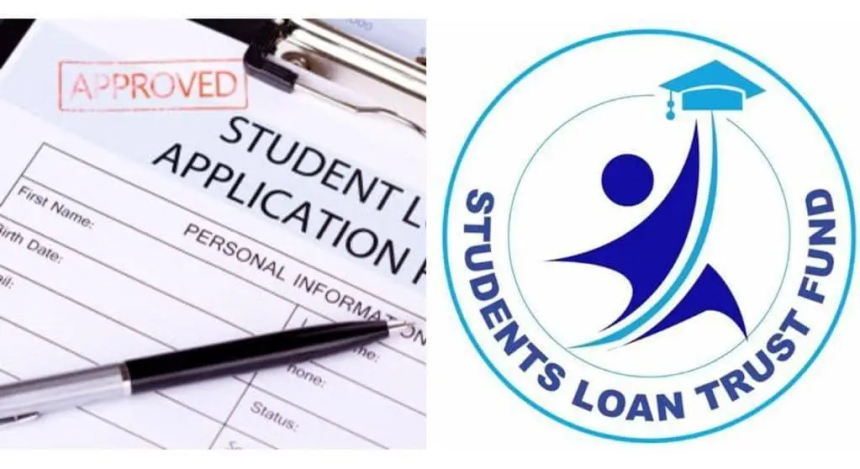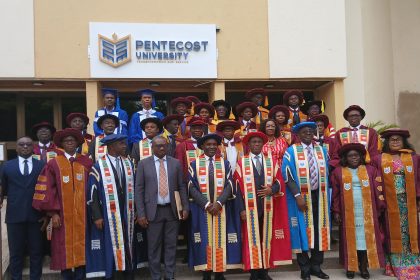The tertiary stage plays an important role in the transition to the world of work.
Tertiary certificates alone do not guarantee a graduate a job due to the scarcity of jobs as Ghana experienced high rate of unemployment.
The National Democratic Congress, as part of its manifesto in 2024, pledged to institute the “No Fees, No Stress” initiative to remove academic fees for first-year students in public tertiary institutions.
True to its promise, President John Dramani Mahama launched the initiative in July 2025 to reduce the financial burden of higher education.
POLICY IMPLEMENTATION
A report from the 2022–2023 academic year shows that although over 150,000 students were admitted to public tertiary institutions, many were unable to enrol because of financial difficulties.
The government officials say over 120,000 Ghanaian students have already benefited from the new government policy that eliminates tuition fees for first-year students of public tertiary institutions.
Official statistics released by the government show that 207,087 applications were received for the programme.
After a validation process, 142,089 applicants were confirmed eligible from the 178,745 students presented by the institutions.
So far, disbursements have been made to 120,222 students, providing significant financial relief to families across the country.
Under the policy, GETFund directly pays the academic facility user fees to the students.
The policy will require over GH¢350 million annually to support approximately 125,000 students.
RESEARCH ARTICLES
As part of the ongoing assessment of this policy, the Centre for Democracy and Socio-economic Development Africa, convened a focus group dialogue in July 2025.
Using purposive sampling, 10 first-year students were drawn from two tertiary institutions (the University of Ghana and the University of Professional Studies, Accra). This focus group discussion sought to achieve the following objectives:
To assess students’ awareness and understanding of the policy.
To examine the accessibility and ease of the application process.
To identify challenges and evaluate the impact of the policy on financial stress.
To generate recommendations for improving implementation and equity.
Methodology
A qualitative Focus Group Discussion (FGD) was conducted to explore the experiences and perspectives of students regarding the No-Fees Stress Initiative. The session involved 10 participants, made up of both applicants and beneficiaries, as well as one teaching assistant who offered additional academic context.
Some key issues identified in the research include barriers to registration. It said 20 per cent of participants (2 out of 10) experienced significant registration challenges.
Poor awareness creation was also identified. All participants (100 per cent) indicated that the awareness creation around the No-Fees Stress Initiative was poorly executed.
While most students became aware of the policy through media reports, news portals, and the President’s 2024 manifesto launch, they noted that detailed information on how to access and complete the registration process was lacking until much later.
Several participants emphasised the need for clear, consistent, and timely communication from government agencies to prevent confusion and misinformation.
Other issues that came up included limited access and uptake disbursement preferences, timing concerns and operational issues.
SUSTAINABILITY CONCEPT
Research revealed that the sustainability of a policy refers to its long-term viability and its ability to achieve its objectives without negatively impacting future generations or the broader environment, social structures, and economic systems.
To assess this, policies must be evaluated against the principles of sustainability, considering their economic, social, and environmental impacts over time. Key aspects include the policy’s ability to meet present needs without compromising the future, its alignment with environmental, social, and governance goals, and its capacity for continuous adaptation to evolving circumstances and stakeholder needs.
From the discussions, it is clear that sustainable policies are hinged on long-term vision, where the policy goes beyond immediate gains to secure lasting positive outcomes for future generations.
It also touches on integrated approach, stakeholder engagement, adaptability, monitoring, transparency and accountability.
SUSTAINABILITY DEBATE
Mr Haruna Iddrisu, Minister of Education, has called for a portion of the country’s oil revenue to be dedicated to the No Fees Stress Policy to ensure long-term financial grounding.
Speaking at a stakeholders’ engagement organised by the Students Loan Trust Fund on Friday, September 5, Mr Iddrisu proposed that 2.5 per cent of the country’s oil revenue be channelled into scholarships and bursaries to guarantee the policy’s sustainability.
He said the GETFund alone cannot sustain the policy.
The policy witnessed stiff opposition from various sectors, with the New Patriotic Party, doubting the viability of the initiative while civil society organisations had mixed feelings.
CSO REACTION
The Centre for Public Opinion and Awareness (CenPOA) says it has taken note of the Minister’s proposal to fund the “No Fees Stress” policy for tertiary education.
The Centre said the country continued to deal with challenges such as schools operating under trees, infrastructural deficits at the basic level, and the sustainability of the Free SHS programme itself.
It said diverting scarce oil revenues to fund tertiary education under the policy risks worsening these pressing concerns.
Rather than channelling vital oil revenues into free tertiary education, CenPOA believes the government should prioritise investing in sustainable industries and job creation.
With thousands of graduates already struggling to find work, expanding productive sectors of the economy will not only provide employment but also generate real demand for tertiary education in a manner that is sustainable and growth-driven.
UNESCO PERSPECTIVE
The United Nations Educational Scientific and Cultural Organization(UNESCO) says the inadequate financing for education threatens global sustainable development, as global public spending on education is woefully inadequate to address the education crisis.
It called for an urgent paradigm shift to prioritise and increase investments in education, teaching, and learning, and to ensure more resources for education.
EDUCATION FINANCING AT STAKE
A UNESCO report states that the 2030 Sustainable Development Goal (SDG) agenda is severely off track, with only 17 per cent of SDG targets on track to be achieved by 2030, with SDG 4 (inclusive and equitable quality education) particularly, lagging behind.
There is a crisis of quality, relevance, equity and inclusion in education: in 2023, more than 250 million children and young people were out of school.
In low- and lower-middle-income countries, 70 per cent of children cannot read a simple text by age 10, and in the poorest countries, this figure is as high as 90 per cent.
THE COST OF ACTION
It said failure to act can have devastating financial repercussions.
Governments could face a staggering US$1.1 trillion loss each year due to early school leavers and an additional US$3.3 trillion forfeited because children lack basic skills.
An alarming potential loss of US$21 trillion, which is equivalent to 17 per cent of global Gross Domestic Product, could occur in lifetime earnings for students due to escalating education inequities, learning poverty, and loss of learning opportunities.
EDUCATION IS A TRANSFORMATIVE INVESTMENT, NOT A COST
UNESCO is of the view that education is the cornerstone for achieving all SDGs and serves as a catalyst for climate action with long-term investment.
Sustainable financing for education can and must be accelerated to serve as a foundation in driving progress towards all other SDGs.
It calls for mobilising sufficient resources (both domestic and international) to ensure the sustainability of education funding.
A renewed global financing framework is essential to address cross-cutting development priorities and to ensure adequate financing for essential public services, guaranteeing equal access to quality education.
OPINION OF EXPERTS
Professor Ibrahim Mohammed Gunu, Dean of the Faculty of Education at the University of Development Studies, raises concerns about the sustainability of the policy.
He proposes a broader conversation on its practical implementation and stresses the need for clear, long-term funding plans to ensure that the policy does not die.
Other experts hold the opinion that sustainable funding for education policies requires diversified revenue streams beyond reliance on volatile sources which includes a blend of government funding, increased taxes like VAT allocated to education, efficient management, and innovative approaches like public-private partnerships, leveraging data and compelling stories to attract diverse donors and stakeholders.
Long-term success depends on robust, predictable funding that enables institutions to meet current and future obligations.
OPPOSITION TO THE POLICY
Some political commentators described the policy as well-meaning but potentially unsustainable.
They were of the view that funds allocated for such a policy could be better invested in critical development areas like health, infrastructure and job creation.
They believe that the government can establish a targeted, accessible loan scheme with no interest.
CONCLUSION
From the above discussions, it is evidently clear that sustaining the No Fees Stress Policy for tertiary needs a long-term investment to address bottlenecks or unforeseen circumstances.
GETFund as the only funding stream for the policy would not be viable in the long term because the fund is fed by limited sources and also supports other educational projects.
The motive behind the policy is good, but broader conversations should take place to find better funding mechanisms to ensure the sustainability of the policy which seeks to improve tertiary learning outcomes.
GNA






